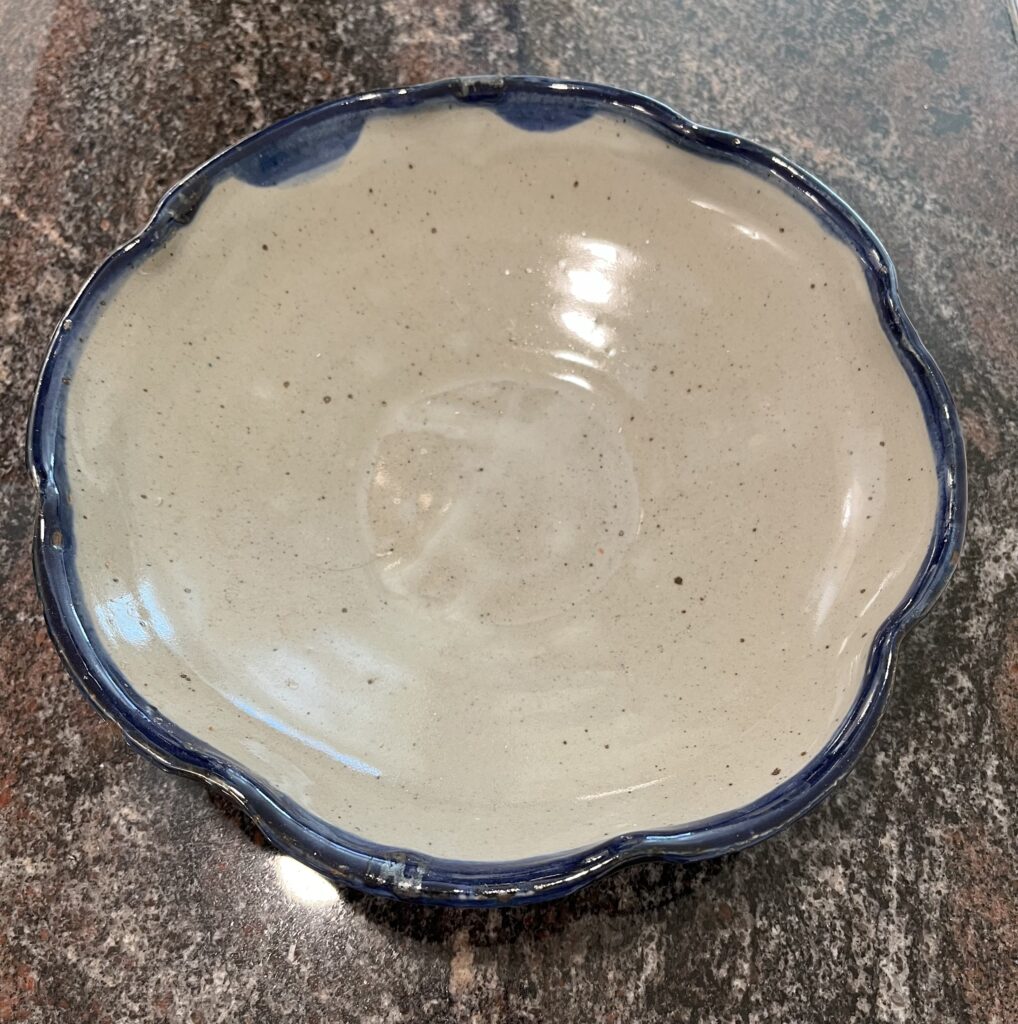Thirteenth Sunday after Pentecost, Proper 18, September 7, 2025: Jeremiah 18:1-11; Psalm 139:1-5, 12-17; Philemon 1-21; Luke 14:25-33
For you yourself created my inmost parts; you knit me together in my mother’s womb.
Thus Psalm 139 reminds us that we were created by God, and that the Lord has been with us always. Yet the rest of our readings today speak to the possibility of change.
For years I was mesmerized watching potters throw clay–the smooth action which turned a lump of clay into a usable pot. I always said I’d like to learn to throw pots, and finally decided the time had come to do it or stop saying I wanted to do it. So for about fifteen years, I took pottery classes. I became an adequate potter, making things that were pretty good. Like anyone who learns a craft, I knew where my work fell short, where really skilled potters did things better than I did.
Perhaps the most important thing I learned while studying pottery was that the real difference between me and skilled potters was what we did when something went wrong: the clay wasn’t prepared properly, or we didn’t open it correctly, or something. Even good potters made mistakes. But the good potters were better able to fix their mistakes, and maybe not make what they had intended, but to make something else.
The Lord tells Jeremiah he is a skilled potter; he can remake the vessel he is making in different ways. If the people are evil, things go one way, and if they repent, another. God may have been with us from before we were born, but we can change, and our relationship to God can change. If something goes wrong, it can be set right: it is not set in stone. The potter can fix things.
The possibility of change is also central to Paul’s letter to Philemon. It feels like a letter: there is a back story we don’t know. But what we do know is that Onesimus is enslaved by Philemon, but has been with Paul when Paul is imprisoned. During that time Onesimus has been converted by Paul, and has become valuable to Paul like a son. Paul would like to keep Onesimus with him, but is sending him back to Philemon. He would like Philemon to free Onesimus, but he also wants that to be Philemon’s choice.
There’s a suggestion that Onesimus had done something wrong–had he run away? Or stolen something? But Paul wants that charged to him, not to Onesimus. Paul tells Philemon that Onesimus has changed, and inevitably, as he is now a Christian, so his relation to Philemon will change.
Onesimus changed; Philemon can change. Even more, their relationship to each other can change: they can become “beloved brothers“. The potter can reshape the pot. We too change. At different times in our lives, our relationship to God changes. Some of us drift away for a time, or are angry about something. God seems inadequate. And then we find our way back.
What is reassuring is that there is room for change. We are not stuck. When we change, God too can change, and help us reshape our lives in whatever way feels right. God knit us together in the womb, but as a potter adjusts, so too can God. And so can we.

A pot where a mistake was turned into something else.

Leave a Reply